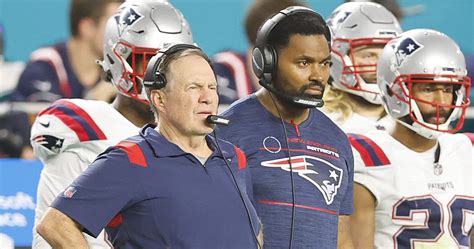
Nikola Jokic, the Denver Nuggets’ two-time MVP, revealed Manu Ginobili, the Argentinian basketball legend, as his NBA idol, a surprising admission given Jokic’s dominant and uniquely European style of play often compared to other historical big men. This revelation came during a recent media availability, shedding light on the Serbian superstar’s admiration for Ginobili’s unorthodox approach and competitive fire.
Denver Nuggets superstar Nikola Jokic has surprised many by identifying Manu Ginobili, the former San Antonio Spurs guard, as his NBA hero. The two-time MVP, known for his exceptional passing, court vision, and unconventional playing style, named Ginobili as the player he most admired, a departure from the typical comparisons to dominant centers of the past.
“It was Manu Ginobili,” Jokic said when asked about his NBA idol. “I just loved how he played. He was left-handed; he was doing all those crazy moves. He was winning. I was just a big fan of him.”
The revelation offers a fascinating glimpse into Jokic’s basketball influences. While many might expect him to cite legendary centers like Hakeem Olajuwon, Tim Duncan, or even fellow European big men like Arvydas Sabonis, Jokic’s choice highlights the impact Ginobili had on aspiring international players. Ginobili, a four-time NBA champion with the Spurs, was renowned for his creativity, fearlessness, and clutch performances, earning him a place in the Naismith Memorial Basketball Hall of Fame. His Euro step, a move now widely emulated in the NBA, became a signature of his game, and his willingness to sacrifice for the team endeared him to fans and teammates alike.
Jokic’s admiration for Ginobili extends beyond mere fandom; it reflects a deeper appreciation for a player who defied traditional norms and achieved greatness through skill, determination, and a unique style. The Serbian center himself has carved a similar path, dominating the NBA with his exceptional playmaking, scoring prowess, and basketball IQ, all while maintaining a humble and team-first attitude.
The comparison between Jokic and Ginobili, while unexpected, reveals underlying similarities in their approaches to the game. Both players possess exceptional court vision, a willingness to make unconventional plays, and an unwavering commitment to winning. Ginobili’s influence can perhaps be seen in Jokic’s own creative passing and willingness to take risks on the court, traits that have made him one of the most captivating and effective players in the NBA.
The news of Jokic’s idol quickly spread across social media, sparking discussions and debates among fans and analysts. Many expressed surprise at the choice, while others praised Jokic for recognizing Ginobili’s impact on the game. The revelation also sparked renewed interest in Ginobili’s career and legacy, reminding fans of his remarkable achievements and his enduring influence on the sport.
The impact of international players on the NBA has grown exponentially in recent decades, and Ginobili played a significant role in paving the way for future generations. His success with the Spurs demonstrated that players from outside the United States could not only compete at the highest level but also become integral parts of championship teams. Jokic, along with other international stars like Giannis Antetokounmpo and Luka Dončić, continues to build upon Ginobili’s legacy, showcasing the global reach of basketball and the diverse talent that now defines the NBA.
Ginobili’s Hall of Fame career speaks for itself. Beyond the four NBA championships, he was a two-time All-Star and won the Sixth Man of the Year award in 2008. His international accomplishments are equally impressive, including an Olympic gold medal with Argentina in 2004, where they defeated the United States in the semi-finals. Ginobili’s impact extended beyond statistics; he was a leader, a mentor, and a role model for aspiring players around the world.
Jokic, on the other hand, is still in the prime of his career. At 29 years old, he has already achieved remarkable success, including two MVP awards, an NBA championship, and a Finals MVP award. He continues to redefine the center position with his unparalleled playmaking and scoring ability, and he is widely regarded as one of the best players in the game. As Jokic continues to add to his legacy, Ginobili’s influence will undoubtedly remain a source of inspiration and motivation.
The Nuggets, led by Jokic, are currently among the top contenders in the Western Conference. They are looking to build upon their championship success and establish themselves as a dynasty in the years to come. Jokic’s leadership and exceptional play will be crucial to their success, and his admiration for Ginobili serves as a reminder of the values that underpin his game: teamwork, creativity, and an unwavering commitment to winning.
The relationship between Jokic and Ginobili is also interesting to consider. While there is no public record of a deep personal relationship, the mutual respect between the two players is evident. Ginobili has publicly praised Jokic on several occasions, recognizing his exceptional talent and his impact on the game. Jokic’s admiration for Ginobili further underscores the Argentinian’s enduring legacy and his influence on the next generation of NBA stars.
The news of Jokic’s admiration for Ginobili also resonated with fans in Argentina, where Ginobili is a national hero. The revelation served as a reminder of Ginobili’s impact on Argentinian basketball and his role in inspiring a generation of players. It also highlighted the global reach of the NBA and the connections that exist between players from different countries and cultures.
In conclusion, Nikola Jokic’s revelation that Manu Ginobili is his NBA idol provides a fascinating glimpse into the influences that have shaped his game. While the choice may surprise some, it reflects a deeper appreciation for Ginobili’s unique style, his unwavering commitment to winning, and his impact on the global game of basketball. As Jokic continues to build upon his own legacy, Ginobili’s influence will undoubtedly remain a source of inspiration and motivation. The revelation also underscores the enduring legacy of Ginobili, who continues to inspire players and fans around the world with his remarkable achievements and his unwavering commitment to the game. The story serves as a testament to the power of role models and the importance of recognizing the contributions of those who have paved the way for future generations.
Frequently Asked Questions (FAQ)
-
Why is it surprising that Nikola Jokic chose Manu Ginobili as his NBA idol?
It’s surprising because Jokic is a dominant center, and NBA fans and analysts often compare him to other legendary big men like Hakeem Olajuwon, Tim Duncan, or even European centers like Arvydas Sabonis. Ginobili, on the other hand, was a guard known for his unconventional style and Euro step. Jokic’s choice highlights his appreciation for Ginobili’s creativity, competitiveness, and unique approach to the game, rather than focusing solely on players who share his position. The perception is that Jokic, given his size and role, would idolize someone in the same category.
-
What qualities did Nikola Jokic admire most about Manu Ginobili?
Jokic admired Ginobili’s overall game, specifically noting Ginobili’s left-handedness, “crazy moves,” and winning attitude. Jokic stated, “I just loved how he played. He was left-handed; he was doing all those crazy moves. He was winning. I was just a big fan of him.” This suggests that Jokic appreciated Ginobili’s unorthodox style, his willingness to take risks, and his ability to perform in clutch moments, all contributing factors to team success.
-
What impact did Manu Ginobili have on the NBA and international basketball?
Ginobili had a profound impact on both the NBA and international basketball. In the NBA, he won four championships with the San Antonio Spurs, earned two All-Star selections, and was named Sixth Man of the Year in 2008. His Euro step became a signature move, and his willingness to sacrifice for the team made him a beloved figure. Internationally, he led Argentina to an Olympic gold medal in 2004, defeating the United States in the semi-finals. Ginobili’s success demonstrated that international players could not only compete at the highest level but also become integral parts of championship teams, paving the way for future generations of global talent. Ginobili inspired many international players, including Jokic.
-
How does Jokic’s admiration for Ginobili reflect his own playing style and approach to the game?
While Jokic and Ginobili played different positions, their approaches to the game share some similarities. Both players possess exceptional court vision, a willingness to make unconventional plays, and an unwavering commitment to winning. Jokic’s creative passing and willingness to take risks on the court may be influenced by Ginobili’s example. Both players also prioritize team success over individual accolades, demonstrating a selfless approach to the game. Both have a similar focus and determination to win.
-
What has been the reaction to Jokic’s revelation, and what does it say about Ginobili’s legacy?
The reaction to Jokic’s revelation has been largely one of surprise and appreciation. Many fans and analysts expressed surprise at the choice, while others praised Jokic for recognizing Ginobili’s impact on the game. The revelation has also sparked renewed interest in Ginobili’s career and legacy, reminding fans of his remarkable achievements and his enduring influence on the sport. It underscores the enduring legacy of Ginobili, who continues to inspire players and fans around the world with his remarkable achievements and his unwavering commitment to the game. It reinforces the idea that Ginobili is not only a Spurs legend but also a global icon who transcended his position and inspired players worldwide.
Expanded Analysis and Context
The choice of Manu Ginobili as Nikola Jokic’s NBA idol is particularly intriguing given Jokic’s status as a dominant center and his often-cited comparisons to other legendary big men. While similarities exist between Jokic and players like Hakeem Olajuwon in terms of footwork and skill, or Tim Duncan in terms of fundamental excellence and team-first mentality, Ginobili’s game was predicated on a different set of attributes: creativity, unpredictability, and a relentless competitive spirit.
Ginobili’s impact on the NBA extended far beyond his individual statistics. He revolutionized the way guards approached the game, popularizing the Euro step and demonstrating the effectiveness of unorthodox moves and improvisational play. He was a master of drawing fouls, creating opportunities for his team, and disrupting the opposing team’s rhythm. Ginobili’s willingness to take risks and his clutch performances made him a valuable asset for the Spurs, and his leadership helped the team maintain a consistent level of success for over a decade.
Jokic’s appreciation for Ginobili likely stems from a recognition of these qualities. While Jokic’s game is rooted in fundamentals and exceptional basketball IQ, he also possesses a creative flair and a willingness to make unconventional plays. His passing ability is unparalleled for a center, and he often delivers passes that seem impossible, finding teammates in unexpected spots. This creativity, combined with his scoring prowess and rebounding ability, makes him one of the most complete and versatile players in the NBA.
The comparison between Jokic and Ginobili also highlights the growing influence of international players on the NBA. Ginobili was one of the first international players to achieve superstardom in the league, and his success paved the way for future generations of global talent. Jokic, along with other international stars like Giannis Antetokounmpo and Luka Dončić, continues to build upon Ginobili’s legacy, showcasing the diverse talent that now defines the NBA. These players bring different perspectives, skills, and styles to the game, enriching the league and making it more global than ever before.
The San Antonio Spurs, the team Ginobili played for his entire NBA career, have long been known for their international scouting and development. Under the leadership of coach Gregg Popovich, the Spurs have consistently identified and developed talent from around the world, creating a team that reflects the global reach of basketball. Ginobili was a key part of this international contingent, and his success helped to validate the Spurs’ approach.
The revelation of Jokic’s idol also resonates with fans in Argentina, where Ginobili is a national hero. Ginobili’s success with the Spurs and his leadership of the Argentinian national team have made him a beloved figure in his home country. His Olympic gold medal in 2004 is still celebrated as one of the greatest achievements in Argentinian sports history. Jokic’s admiration for Ginobili serves as a reminder of Ginobili’s impact on Argentinian basketball and his role in inspiring a generation of players.
In addition to his on-court accomplishments, Ginobili is also known for his humility and his commitment to giving back to the community. He is actively involved in charitable work and has used his platform to raise awareness for important causes. This commitment to social responsibility further enhances his legacy and makes him a role model for aspiring players and fans alike.
The impact of role models in sports cannot be overstated. Young athletes often look up to professional players for inspiration, guidance, and motivation. Role models can help shape young athletes’ values, attitudes, and behaviors, both on and off the court. Jokic’s admiration for Ginobili serves as a reminder of the importance of role models and the impact they can have on shaping the next generation of athletes.
Jokic’s own role as a role model is also worth considering. As one of the best players in the NBA, he has a significant influence on young fans around the world. His humble demeanor, his team-first attitude, and his dedication to the game make him a positive role model for aspiring players. By acknowledging Ginobili as his idol, Jokic is also highlighting the importance of recognizing the contributions of those who have paved the way for future generations.
The story of Jokic and Ginobili also highlights the importance of perseverance and overcoming challenges. Both players faced obstacles in their careers, but they persevered through hard work, determination, and a belief in their abilities. Ginobili was often overlooked early in his career, but he never gave up on his dream of playing in the NBA. Jokic was a relatively unknown prospect coming out of Serbia, but he quickly developed into one of the best players in the world. Their stories serve as an inspiration to young athletes who are facing their own challenges.
The relationship between Jokic and Ginobili is also interesting to consider in the context of the broader NBA landscape. The league has become increasingly global in recent decades, with players from all over the world making significant contributions. This globalization has brought new perspectives, skills, and styles to the game, enriching the league and making it more competitive. Jokic and Ginobili are both products of this globalization, and their success is a testament to the power of diversity and inclusion.
The news of Jokic’s admiration for Ginobili has also sparked discussions and debates among fans and analysts about the definition of greatness in sports. Some argue that greatness is solely defined by individual statistics and accomplishments, while others believe that it is also determined by a player’s impact on the team, their leadership, and their contributions to the community. Ginobili’s legacy is a testament to the latter definition, as he was a player who made a significant impact on the Spurs both on and off the court.
Jokic’s career is still in its prime, and he has the potential to achieve even greater success in the years to come. He has already won two MVP awards, an NBA championship, and a Finals MVP award, and he is widely regarded as one of the best players in the game. As he continues to add to his legacy, Ginobili’s influence will undoubtedly remain a source of inspiration and motivation. The story of Jokic and Ginobili is a testament to the power of role models, the importance of perseverance, and the global reach of basketball. It is a story that will continue to inspire players and fans around the world for years to come. The unlikely idol choice further humanizes Jokic, showing that even dominant players have those they look up to and emulate, no matter how different their games might appear on the surface.
Furthermore, Jokic’s admission underscores the subtle but powerful influence of the “Spurs Way” – a culture of selflessness, team play, and continuous improvement that characterized the San Antonio Spurs dynasty. Ginobili was a key embodiment of this culture, and Jokic, despite playing for a different franchise, evidently absorbed some of those values through observation and admiration. This connection highlights the interconnectedness of the NBA, where ideas and philosophies can transcend team boundaries and shape the game as a whole. It also reinforces the idea that the Spurs, under Gregg Popovich, created a lasting legacy that continues to impact the league today.
Beyond the tactical and strategic aspects, Jokic’s admiration for Ginobili also speaks to the emotional and aesthetic dimensions of basketball. Ginobili played with a flair and passion that resonated with fans and fellow players alike. His willingness to take risks, his acrobatic finishes, and his infectious enthusiasm made him a captivating figure. Jokic, while known for his stoic demeanor, also possesses a unique artistic sensibility on the court, crafting passes and orchestrating plays with a creativity that sets him apart. In a way, both players represent a departure from the purely athletic and statistical approach to basketball, emphasizing the importance of artistry, improvisation, and joy in the game.
The revelation also allows for a deeper exploration of Jokic’s personality and basketball philosophy. Despite his immense talent and accolades, Jokic remains remarkably humble and grounded. He consistently deflects praise, emphasizing the importance of teamwork and crediting his teammates for his success. This humility is reminiscent of Ginobili, who always prioritized the team over individual recognition. By acknowledging Ginobili as his idol, Jokic is implicitly endorsing these values, reinforcing his image as a player who is more concerned with winning and contributing to the team than with personal glory.
Finally, the story of Jokic and Ginobili highlights the evolving nature of basketball fandom. In the past, fans often gravitated towards players who closely resembled their own physical attributes or playing styles. However, Jokic’s admiration for Ginobili demonstrates that fandom can transcend these superficial similarities. It suggests that fans are increasingly drawn to players who embody certain values, exhibit exceptional skills, or simply play the game with passion and integrity, regardless of their position, nationality, or physical characteristics. This evolution reflects the growing sophistication of basketball fans and their increasing appreciation for the nuances and complexities of the game.









